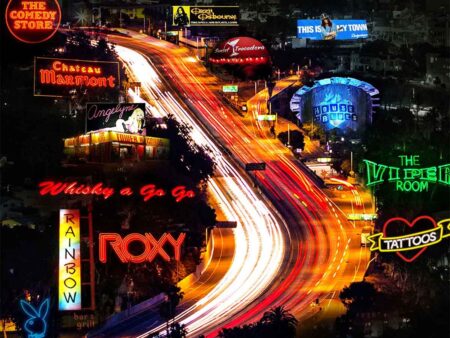In the world of glam metal, few stories hit harder—or louder—than Nikki Sixx’s. Long before he became the leather-clad mastermind behind Mötley Crüe, Sixx lived on the streets, stole to survive, and reinvented himself from a troubled teen into a rock icon. And in 1987, he literally died—only to come back and write one of the band’s most electrifying anthems, “Kickstart My Heart.”
That title wasn’t a metaphor. It was a heartbeat restored by adrenaline after a heroin overdose that left him clinically dead for two minutes. In true Nikki Sixx fashion, the experience didn’t mark the end—it lit the fuse for a whole new chapter.
From Frank to Nikki: A Self-Made Rock Star
Born Frank Feranna Jr. in San Jose, California, Sixx had a tumultuous upbringing marked by instability and abandonment. He ran away from home as a teenager, spent time homeless, and eventually made his way to Los Angeles. There, he legally changed his name to Nikki Sixx, severing ties with his past and setting out to build a new life on his own terms.
That reinvention became the fuel for Mötley Crüe. Co-founding the band in 1981 with drummer Tommy Lee, Sixx helped carve out a sound—and an image—that would come to define glam metal: loud, dirty, dangerous, and undeniably catchy.
Writing the Soundtrack of Excess
Sixx wasn’t just the band’s bassist—he was also its primary creative force. While songwriting was often collaborative, Sixx penned the majority of the lyrics for hits like “Dr. Feelgood,” “Shout at the Devil,” and “Girls, Girls, Girls,” drawing from real-life chaos, debauchery, and emotional scars. His words captured the dark underbelly of the Sunset Strip scene even as they fueled its party-hard reputation.
But behind the mascara and Marshall stacks was a man on the brink.
By the mid-1980s, Sixx’s heroin addiction was spiraling. In December 1987, after a night of heavy partying, he overdosed in his home and was declared clinically dead in the ambulance. A paramedic—reportedly a Mötley Crüe fan—refused to give up, injecting him with two shots of adrenaline that brought him back to life.
Sixx later turned that experience into the adrenaline-pumping track “Kickstart My Heart,” released in 1989. Its lyrics are pure Crüe energy, but the story behind them runs much deeper.
Recovery, Relapse, and Redemption
While Sixx would eventually find long-term sobriety, his journey wasn’t a straight line. He’s been open about the relapses, the chaos, and the toll addiction took on his mental health. But out of those struggles came some of his most powerful work—especially The Heroin Diaries, his 2007 bestselling memoir that chronicled a year in the life of an addict with brutal honesty and raw insight.
Accompanying the book was a concept album by his second band, Sixx:A.M., which explored similar themes with a more introspective sound than Crüe’s bombastic catalog. Tracks like “Life Is Beautiful” showed a different side of Sixx—reflective, vulnerable, and focused on healing.
Beyond the Bass: Author, Photographer, Advocate
Sixx’s creative output has only grown since leaving behind his most self-destructive years. In addition to The Heroin Diaries, he published This Is Gonna Hurt, which paired photography with essays about beauty, pain, and resilience. His work behind the lens revealed a new layer to his artistry—one focused less on image and more on truth.
He also became a vocal advocate for addiction recovery, using his platform to support awareness campaigns and treatment initiatives. His radio show, Sixx Sense, offered a space to connect with fans on everything from music to mental health.
The Dirt and the Drama
Mötley Crüe’s story was immortalized in the 2001 autobiography The Dirt and its 2019 Netflix film adaptation. The movie dramatized Sixx’s overdose and near-death experience, bringing his story to a whole new generation. While some scenes were exaggerated for effect, the heart of it—the excess, the collapse, the comeback—was all true.
And Sixx has made peace with all of it. In recent interviews, he reflects on his early years with a mix of disbelief and gratitude. He doesn’t glamorize the past, but he doesn’t run from it either. It’s part of the story—and part of what gives his music its bite.
Kickstarting Legacy
Today, Nikki Sixx is more than just a rock survivor. He’s a storyteller, an entrepreneur, and a reminder that reinvention is always possible—even after the heart stops beating.
From a homeless teen named Frank Feranna Jr. to a bass-slamming icon of ‘80s metal, Sixx’s journey is one of pain, passion, and persistence. He’s lived through what few do—and turned it into music that still kicks, screams, and lives on.



